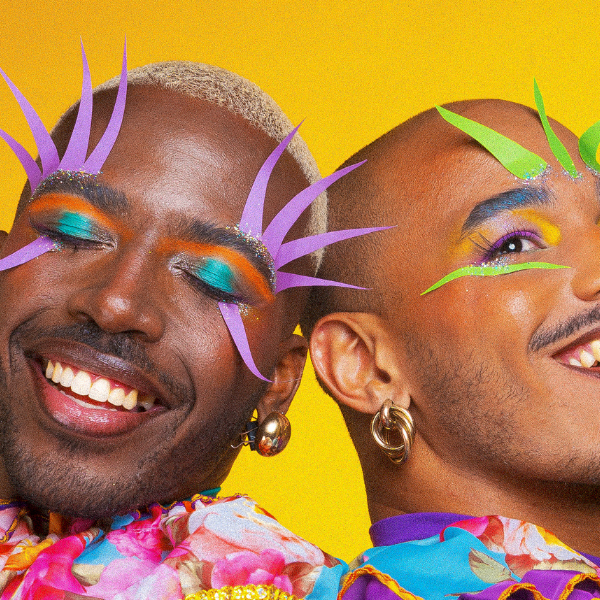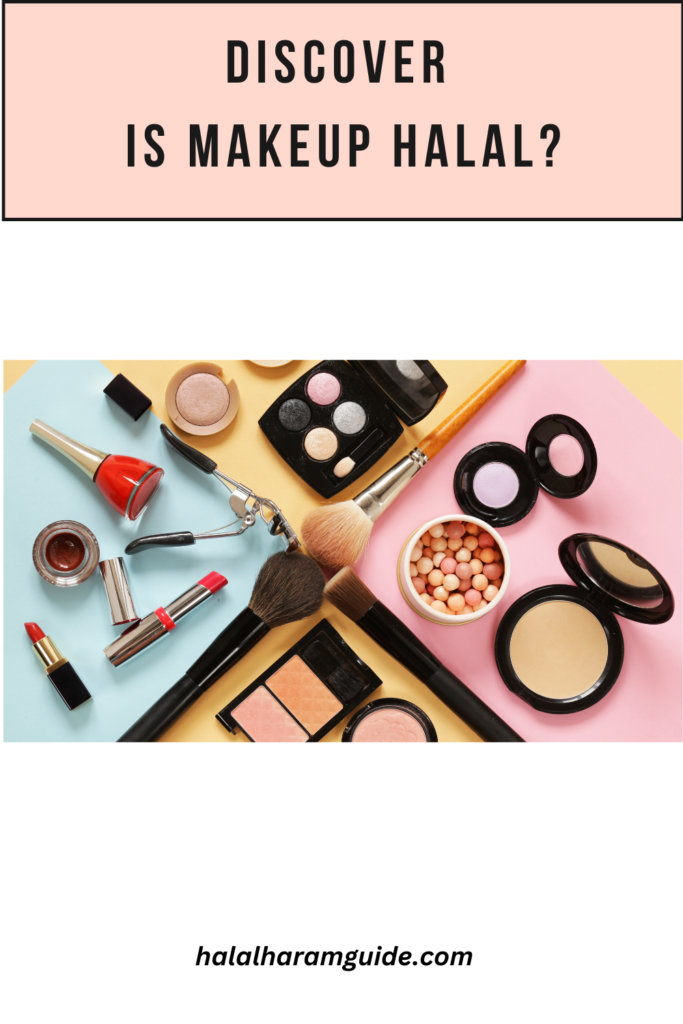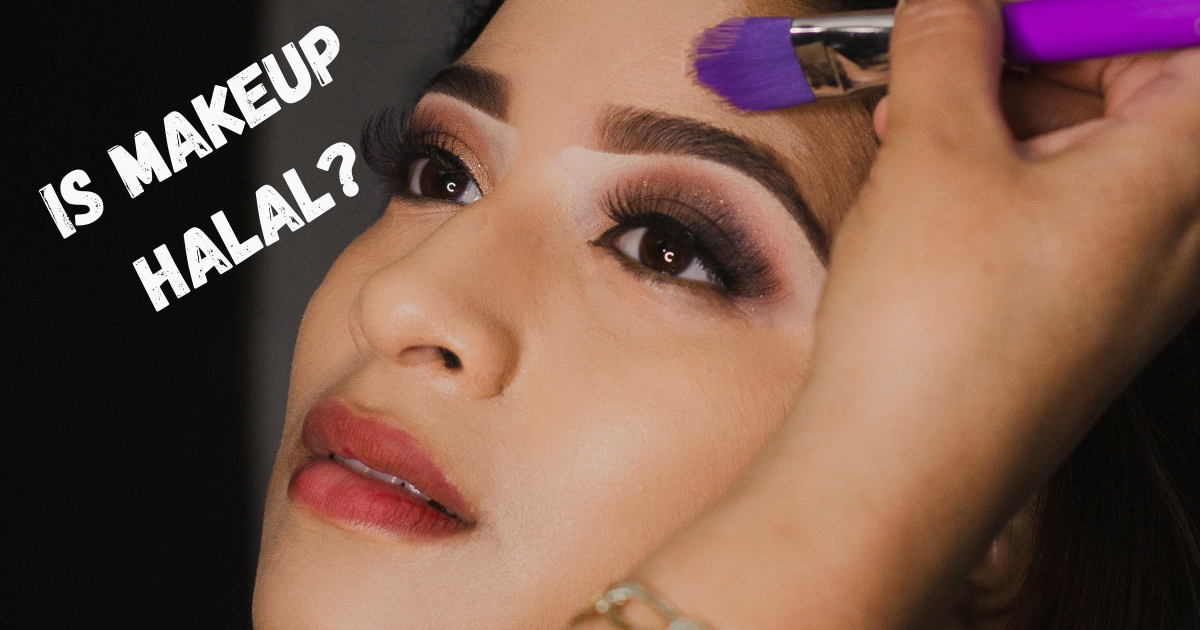“Is Your Makeup Ethically Glam? Unraveling Is Makeup Halal!”
Welcome to our blog post exploring the fascinating world of “Is makeup halal?” If you’ve ever wondered about the ethical aspects of cosmetics and whether your favorite beauty products align with halal principles, you’ve come to the right place.
In this article, we’ll delve into the key considerations of halal makeup, helping you make informed and responsible choices for your beauty routine.
Let’s uncover the truth behind halal cosmetics and embark on a journey to embrace ethical glamor!
What Do The Quran And Hadith Say About Makeup?
In Islamic teachings, the Quran and Hadith provide some guidance on the topic of makeup. While specific mentions of makeup are not extensive, the general principles of modesty, ethical behavior, and moderation are emphasized.
The Quran encourages believers to be modest in their appearance and behavior, focusing on inner beauty and piety. The Hadith, on the other hand, contains narrations of Prophet Muhammad (peace be upon him) advising women to avoid excessive adornment and ostentatious display of makeup.
Overall, while makeup is not explicitly forbidden, it is advised to use it in a manner that adheres to Islamic values, ensuring it enhances natural beauty modestly and avoids extravagance.
The interpretations and practices regarding makeup may vary among different Islamic scholars and cultural traditions.
Why Is Makeup Haram In Islam?
In Islam, the permissibility of makeup is a matter of interpretation and can vary among different scholars and schools of thought. While makeup itself is not explicitly labeled as “haram” (forbidden) in the Quran or authentic Hadith, there are certain conditions and contexts to consider.
The potential reasons why some scholars might discourage or consider makeup as haram are as follows:
Excessive adornment:
If makeup is used excessively, to the point of altering one’s appearance drastically or promoting vanity and arrogance, it could be seen as inappropriate and contrary to Islamic teachings that emphasize modesty and humility.
Deception:
There is a concern that heavy makeup may lead to deception, especially in marriage proposals, where a person may use makeup to present a false image of themselves.
Imitating non-believers:
Some scholars argue that imitating the extravagant styles of non-believers or those who are distant from Islamic values could be disallowed.
Haram Ingredients In Makeup Include:
Commonly found haram (forbidden) ingredients in makeup can vary depending on the interpretation of Islamic teachings and the specific guidelines followed by individuals or communities. Some of the ingredients that might be considered haram by certain Islamic scholars or consumers include:
Alcohol:
Ethanol or alcohol-based ingredients are often considered haram as the consumption of intoxicants is prohibited in Islam.
Pork-derived substances:
Ingredients derived from pork, such as gelatin or certain types of glycerin, are considered haram in Islamic dietary laws and might be avoided in makeup products.
Animal-derived ingredients:
Ingredients obtained from animals that were not slaughtered according to Islamic guidelines, such as certain types of collagen or carmine (red pigment derived from insects), may be considered haram.
Any haram additives:
Some makeup products might contain additives that are considered haram in Islam, such as certain emulsifiers or stabilizers.
Unclean or non-halal production process:
If a makeup product is manufactured using equipment or processes that are not in accordance with halal standards, some individuals may consider it haram.
Can Muslim Men Wear Makeup?

The permissibility of Muslim men wearing makeup is a topic that has varying interpretations within Islamic jurisprudence and cultural norms. Generally, makeup is not a common practice for Muslim men, but whether it is considered haram (forbidden) depends on the specific reasoning behind it.
In Islam, the primary focus is on modesty and avoiding extravagance. Some scholars might consider makeup for men as haram due to concerns about imitating women or engaging in practices traditionally associated with the opposite gender.
However, others argue that a small amount of makeup, especially for grooming or concealing imperfections, may not necessarily be forbidden as long as it is done modestly and with appropriate intentions. For instance, using skincare products or natural makeup to improve one’s appearance might not be viewed as haram by all scholars.
It’s important to recognize that cultural norms and social perceptions can also influence attitudes towards makeup for men. In some societies, men using grooming products like beard oil or skincare is widely accepted, while in others, it may be seen as unusual or even taboo.
Tips To Keep In Mind While Choosing Makeup?
When choosing makeup with the intention of keeping it halal (permissible), consider the following tips:
Halal Certification:
Look for makeup products that have been certified as halal by reputable Islamic organizations. These certifications ensure that the products meet halal standards and do not contain any haram (forbidden) ingredients.
Read Ingredient Lists:
Always read the ingredient lists of makeup products carefully. Avoid products that contain haram ingredients such as alcohol, pork-derived substances, or non-halal slaughtered animal derivatives.
Avoid Questionable Additives:
Some additives or preservatives in makeup may not be clearly labeled, so it’s best to avoid products that have uncertain or questionable ingredients.
Natural and Vegan Options:
Opt for makeup products made from natural or vegan ingredients, as they are more likely to align with halal principles.
Moderation:
Emphasize modesty and avoid excessive or immodest makeup styles. Choose makeup that enhances your natural beauty without altering your appearance drastically.
What Is Alcohol In Makeup?
In the context of makeup, alcohol refers to alcohol-based ingredients that are commonly used in cosmetic products. These alcohols are primarily solvents or preservatives that help stabilize the formulation and enhance the product’s texture and application. There are two main types of alcohols found in makeup:
Fatty Alcohols:
Fatty alcohols are non-drying alcohols derived from natural sources such as coconut oil or palm oil. They have emollient properties and are used in makeup products like moisturizers, creams, and lotions to provide a smooth, creamy texture and moisturizing benefits. Fatty alcohols are generally considered safe and are not the type of alcohol that is considered haram (forbidden) in Islam.
Can Muslims Apply Makeup While Or After Fasting During Ramadan?
Applying makeup during Ramadan is generally permissible, and there is no specific prohibition against it in Islamic texts. Many Muslim women continue to wear makeup during the month, especially for special occasions or social gatherings.
However, some scholars may recommend avoiding excessive makeup during fasting hours out of a sense of modesty and to focus on the spiritual aspects of the holy month. Islam emphasizes the importance of humility and sincerity in worship, and some individuals may choose to refrain from wearing makeup as a form of self-discipline and to maintain a simpler appearance while fasting.
Regarding makeup application after fasting (during non-fasting hours), there are no restrictions, and Muslims can apply makeup as they would on any other day. After sunset (at Iftar), fasting ends, and individuals can engage in their regular daily activities, including applying makeup for evening events or if they desire.
Ultimately, the decision to apply makeup during or after fasting in Ramadan is a personal one, and it is essential to respect individual choices and interpretations of Islamic teachings. Some Muslims may choose to wear makeup throughout Ramadan, while others may opt for a more subdued appearance during fasting hours.
Is Pursuing Makeup Artist As Carrier Haram In Islam?
Pursuing a career as a makeup artist is not inherently haram (forbidden) in Islam. Islam does not specifically prohibit a person from working as a makeup artist or being involved in the beauty industry. However, there are certain considerations to keep in mind to ensure that the career aligns with Islamic principles and values:
Avoiding Haram Practices:
As a makeup artist, it is essential to ensure that the products and techniques used in your work comply with halal guidelines. This means avoiding makeup products that contain haram ingredients, such as alcohol or pork-derived substances.
Modesty and Ethics:
Islam emphasizes modesty and ethical behavior. As a makeup artist, it is important to adhere to these principles by promoting modest and tasteful makeup styles. Avoid encouraging immodest or extravagant makeup looks that go against Islamic values.
Intention and Purpose:
The intention behind pursuing any career is crucial in Islam. As a makeup artist, focus on using your talents to enhance natural beauty and uplift others’ confidence, rather than promoting vanity or deception.
Cultural Sensitivity:
Be mindful of cultural norms and sensitivities regarding makeup. Some cultures or communities may have specific guidelines or preferences related to makeup that should be respected.
Balancing with Other Responsibilities:
Ensure that your career as a makeup artist does not conflict with other important responsibilities in your life, such as family, prayer, and community involvement.
It’s important to remember that Islam encourages lawful and ethical means of earning a living. As long as a makeup artist adheres to halal practices and conducts their work in a manner consistent with Islamic values, pursuing this career can be seen as permissible in Islam. As with any career choice, it is advisable to seek guidance from knowledgeable scholars if you have specific concerns or questions about its permissibility.
List Of Halal Makeup & Cosmetic Brands
Inglot: This brand offers a wide range of halal-certified cosmetics, including foundations, lipsticks, and eyeshadows.
Amara Halal Cosmetics: A brand that specializes in producing halal-certified makeup products, including lipsticks, nail polishes, and more.
Sampure Minerals: This brand focuses on mineral makeup products, offering halal-certified foundations, powders, and blushes.
Zahara Cosmetics: Known for its halal-certified and vegan makeup products, including lipsticks, eyeshadows, and nail polishes.
Tuesday in Love: A halal-certified brand specializing in water-permeable nail polishes and halal cosmetics.
OnePure: This brand offers halal-certified skincare and makeup products, emphasizing natural and organic ingredients.
INIKA Organic: A halal-certified brand that focuses on organic and natural makeup products, including foundations, eyeliners, and mascaras.
Tara Cosmetics: Known for its halal-certified makeup products, including lipsticks, eyeliners, and eyebrow pencils.
Palladio Beauty: Offers a range of halal-certified makeup products, including lipsticks, eyeshadows, and foundations.
Sahara Rose: This brand offers halal-certified cosmetics, including lipsticks, lip glosses, and eyeshadows.
Conclusion
In conclusion, the topic of whether makeup is halal in Islam is one that requires careful consideration and understanding of the principles of modesty and ethical conduct.
While there is no specific mention of makeup in the Quran or Hadith, adhering to halal-certified products and avoiding haram ingredients ensures a responsible approach to beauty.
Embracing the concept of ethical glamor, we can strike a balance between enhancing our natural beauty and upholding the values of our faith. With knowledge, intention, and mindfulness, Muslim individuals can confidently navigate the world of makeup, making choices that align with their beliefs and cultural norms.
FAQs
FAQs About Is Makeup Halal
Is makeup entirely forbidden in Islam?
No, makeup is not entirely forbidden in Islam. While there are guidelines to follow, using halal-certified products and avoiding haram ingredients allows for a responsible approach to makeup.
What ingredients should I look out for to ensure my makeup is halal?
Look out for ingredients like alcohol, pork-derived substances, and non-halal slaughtered animal derivatives to ensure your makeup is halal.
Are there any specific makeup practices that Muslims should avoid in Islam?
Muslims should avoid excessive or immodest makeup styles and be mindful of intentions, promoting modesty and ethical practices.
Can Muslim men wear makeup, and are there any restrictions regarding this?
Yes, Muslim men can wear makeup, but they should avoid imitating women or engaging in practices that may be considered against Islamic principles.
Are there any reputable halal makeup brands available in the market, and how can I identify them?
There are several reputable halal makeup brands available, such as Inglot, Amara Halal Cosmetics, and Tara Cosmetics. Look for halal certifications and vegan options to identify them.
- “Is Lobster Halal? Understanding Its Permissibility”
- “Is Drawing Haram in Islam? Understanding the Perspective”
- “Is Fermented Kimchi Halal? Exploring Kimchi’s Halal Status”
- “Is Collagen Halal? Unveiling the Halal Status of Collagen”
- “Is Wine Vinegar Halal? Unveiling Its Permissibility”


